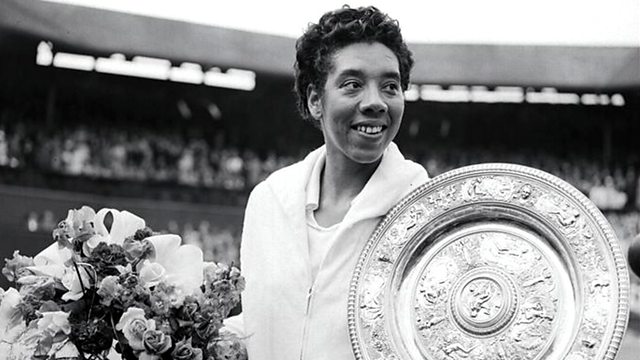Althea Gibson, Bill of Rights, Sexual assault at festivals, Miscarriage & stroke, Viking Festival - Up Helly Aa
Despite many obstacles, Althea Gibson's achievements, now more than 60 years ago, led Wimbledon winner Serena Williams to describe her as the ‘most important pioneer for tennis’.
On Wednesday the government announced plans to create a new ‘Bill of Rights’ to Parliament, that will replace the current Human Rights Act. It argues that these reforms will ‘reinforce freedom of speech, enable us to deport more foreign offenders and better protect the public from dangerous criminals’. But organisations that work with female victims of crime say this is a direct attack on women’s rights. They say the Human Rights Act is an important weapon when it comes to victims and survivors’ ability to seek justice.
Next Monday is the start of this year’s Wimbledon and today we discover the story behind Althea Gibson the first Black woman to win Wimbledon in 1957 and 1958. Despite many obstacles her achievements, now more than 60 years ago, led seven-times Wimbledon winner, Serena Williams, to describe her as the ‘most important pioneer for tennis’. Writer and performer Kemi-Bo Jacobs was so inspired by her that she has written a one-woman play about this trailblazer, now on stage at the Alphabetti Theatre in Newcastle.
With festival season well underway, the Association of Independent Festivals has re-launched the Safer Spaces campaign which tackles sexual assault and harassment at festivals. Over 100 festivals have signed up to their charter, and will be rolling out their policies over the summer. Anita Rani is joined by Kate Osler, who is on the non-executive board of the Association of Independent Festivals and is secretary director for the El Dorado festival where she is currently setting up for next weekend, and Bea Bennister, who co-founded Girls Against, a non-profit organisation fighting sexual assault at live music events.
Women who have suffered multiple miscarriages and stillbirths are at greater risk of stroke, according to new research published by the British Medical Journal. The data looked at over 600,000 women around the world, and in particular women aged between 32 and 73 who were then followed up for an average of 11 years.
Professor Gita Mishra is from the University of Queensland, School of Public Health and the senior author on this project.
As far as festivals go, Shetland's famous Up Helly Aa fire festival has to be one of the most spectacular. It takes place in January and remembers the Vikings who used to rule the Shetland islands 1,000 years ago. Warriors parade through the streets by torchlight as visitors from across the world gather to watch the spectacle and the day culminates with the dramatic burning of a replica Viking long ship. But women and girls have never been allowed to take part in Lerwick - which is the capital of Shetland - until now. It was announced earlier this week there will no longer be gender restrictions. Johan Adamson is a campaigner from the group Up Helly Aa for Aa and Amy Gear is codirector of arts organisation Gaada who looked at the equality of Up Helly Aa for of their projects.
Presenter: Anita Rani
Producer: Kirsty Starkey
Interviewed Guest: Hannah Couchman
Interviewed Guest: Victoria Atkins
Interviewed Guest: Kemi-Bo Jacobs
Interviewed Guest: Kate Osler
Interviewed Guest: Bea Bennister
Interviewed Guest: Professor Gita Mishra
Interviewed Guest: Johan Adamson
Interviewed Guest: Amy Gear
Last on
Broadcast
- Fri 24 Jun 2022 10:0091�ȱ� Radio 4
Follow us on Instagram
Get all the pictures, videos, behind the scenes and more from Woman’s Hour
Podcast
-
![]()
Woman's Hour
Women's voices and women's lives - topical conversations to inform, challenge and inspire.


